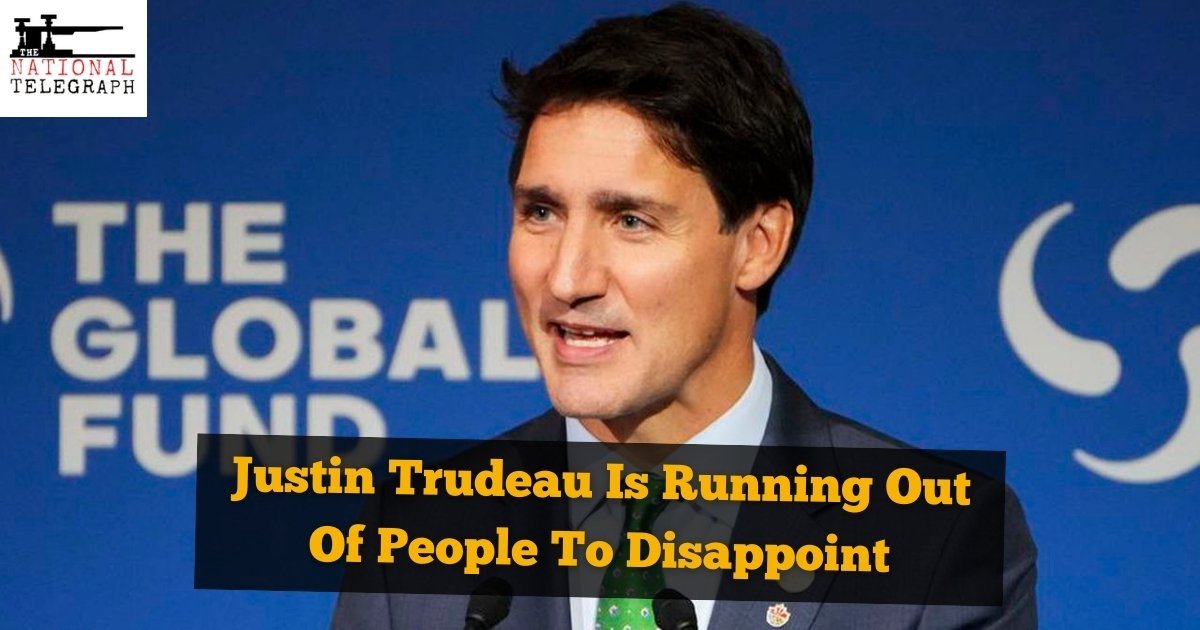Written By Wyatt Claypool, Posted on September 28, 2022

It seems that since the Conservative leadership race started, and ended with the election of Carlton MP Pierre Poilievre as the new CPC leader, Canadians have been thinking much harder about the tenure of Prime Minister Justin Trudeau.
For a while now, Trudeau’s approval ratings have slumped hard, sitting around the mid to high 30s, and his party has been significantly trailing the Conservative Party for the past couple of months. (For context Trudeau’s approval was in the mid-40s before the 2021 election).
Despite the bad indicators for Trudeau, many Liberals in the media are trying to claim each poll or indicator of Trudeau and the Liberal Party’s popularity is just a singular data point not worth reading into, no matter how large the data set gets.
Ipsos just ran a poll for Global News, which found that not only is Justin Trudeau’s job approval low but only 1 in 3 Canadians even want to see Trudeau stay as the prime minister.
Angus Reid also recently showed that out of ten issues Canadian voters say they care most about, seven of the issues decisively favour the Conservative Party and Poilievre (ie. debt, taxes, affordability), and only three issues favour the Liberals and the NDP.
That same poll also showed that only 66 percent of Liberals thought that Trudeau would do a better job on the economy than Poilievre, 62 percent for the cost of living, and 56 percent for the federal deficit. These are seriously not issues any leader can be performing this poorly on with members of his own party. If Liberal supporters don’t feel particularly economically secure with Trudeau, then how can Trudeau win an election where kitchen table issues are deeply important?
Of course, on certain issues like climate change, Conservative supporters only gave Pierre Poilievre a rating of 51 percent, but these low ratings tended to be on heavily politicized issues for Conservatives, who would see a low focus on the climate from Poilievre as a positive sign, indicating he won’t pursue economically-damaging emission taxes and regulations.
For Justin Trudeau, it is also a big red flag for the stability of his leadership that he felt the need to declare to his cabinet during a cabinet retreat in Vancouver that he was intending to stay on as Liberal Party leader for the next election. Usually, it should go without saying that a prime minister will stay on as the leader of his party going into the next election, but it seems like Trudeau has had to fight more in the background in order to keep his position secure.
Many Liberal MPs who are occupying swing ridings would likely prefer a more stable and less clownish leader like Chrystia Freeland or Mark Carney, but at the same time simply replacing Trudeau would be a dangerous acknowledgment that the Trudeau years have not been treating Canadians very well.
Although the legacy media has been trying to kick up outrage and paranoia at Pierre Poilievre vying to become the next Prime Minister of Canada, the fact Poilievre has strong support from his base is a threat to the Liberals, seeing as the past two elections have all been about turnout, and had little to do with winning over new voters.
No matter how hard the media tries to smear Poilievre and the Conservative Party, the data shows more Canadians have much stronger negative opinions of Justin Trudeau. The Angus Reid poll showed that the three most used words to describe Trudeau would be “arrogant” “dishonest” and “corrupt” with the fourth word being the first positive one, which is “charismatic” which still doesn’t actually speak to a positive quality of his character.
(Screenshot from Angus Reid Poll)
If the polls hold up for the Conservatives it is likely they could win a majority government, especially if NDP leader Jagmeet Singh does not collapse and bleeds support over to Trudeau and the Liberals.
Federal Polling Average:
CPC: 35.3%
LPC: 30.3%
NDP: 19.3%
BQ: 6.7%
GPC: 3.8%
PPC: 3.3%– September 26, 2022 –
Check out federal polling here: https://t.co/EzeMOYoZTK pic.twitter.com/3tsBwQEvJr
— Polling Canada (@CanadianPolling) September 26, 2022
Wyatt is a student at Mount Royal University, where he is the president of its Campus Conservative club. In his writing, he focuses on covering provincial and federal politics, firearms regulation, and the energy sector. Wyatt has also previously written for The Post Millennial.
Very well presented. Every quote was awesome and thanks for sharing the content. Keep sharing and keep motivating others.